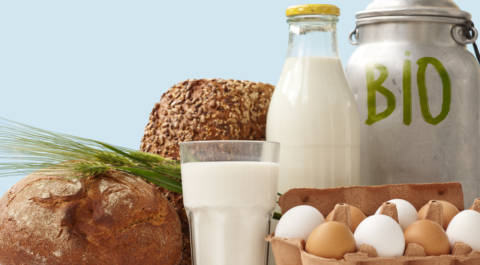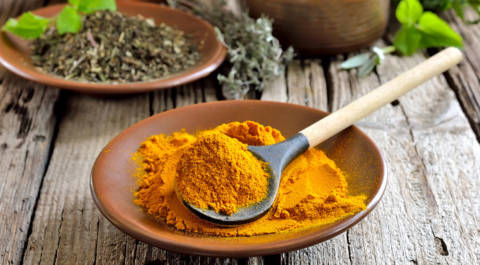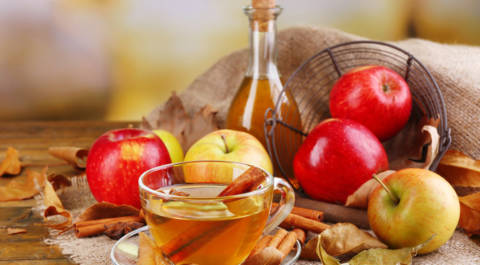
Eating healthily is great, but how you eat can play just as big a role in digestion as what you eat. Even if all your meals consist of nutritious and healthy foods, it is still possible to end up with bloating or excessive wind if you are not careful.
Like Organic Soul on Facebook
This is because people tend to hastily consume their food while distracted by other things, such as television, computers or their phones. Paying more attention to your mealtime routine will not only allow you to enjoy your food more but can also do wonders for your digestion.
1. Pay Attention To How You Eat
Chewing is one of the most important aspects of the digestion process, but one that often gets the least attention. Improper chewing can not only lead to increased food intake and thus a higher risk of obesity, but also cause trouble when it comes to digestion.
The proper way to chew food is to do it slowly and thoroughly, as this breaks down food particles enough for easy digestion. This in turn, makes it easier for nutrients to be absorbed from the food particles.
If food is not broken down enough in the mouth before being swallowed it means that our digestive organs have to expend much more energy than normal to manage the particles.
Improperly chewed food can also enter your intestines undigested where it will begin to be broken down by bacteria. This process can potentially cause bloating and gas as well as cramping, constipation and other digestive issues.
To make sure that you are chewing slowly and thoroughly enough, chew at least 20 times for every mouthful of food, and place your fork down every second time after using it to lift food into your mouth. The more time that you spend chewing food the longer it is in contact with the digestive enzymes in your saliva. This makes it easier on your esophagus as the food is also lubricated.
In addition, to ensure that the food is broken down properly, this method of eating slower also increases the time it takes to finish your meal. This is a very effective way to help avoid weight gain, as eating slower is associated with eating less.
Chewing each bite 20 times can be surprisingly tricky if you have to learn not to fall back on lifelong habits. The way we eat our food is something that becomes deeply ingrained the older we get, so a conscious effort is needed to make any changes.
Begin by taking smaller bites of food, as these are easier to chew than larger chunks. Chew slowly and steadily, and swallow everything that is in your mouth before taking your next bite.
Chewing Isn’t Always Beneficial
As important as it is to chew properly, there are instances when chewing can actually be bad for your digestion. For example, when chewing gum your body anticipates food entering your stomach, which in turn activates acids and enzymes.
Since no food actually enters the stomach it can result in too much stomach acid and cause bloating. If you do decide to chew gum, it is better to do so before a meal to decrease the risk of indigestion.
2. Pay Attention To Where You Eat
It is very tempting to try to save time by multi-tasking when it comes to eating, but this isn’t beneficial for your digestive health. Eating your meals while immersed in other activities, such as reading or watching television can be entertaining, but comes with a lot of downsides.
In addition to missing out on the smell, textures, and flavors of the food it can also result in overeating. As a result, it can also lead to bloating and gas. When not concentrating on our food we also tend to eat faster and chew less, causing further digestive problems.
Because it can take about 20 minutes for the brain to signal the body that you are not hungry anymore it is important to pay attention while eating.
Otherwise the risk of consuming much more calories than really needed increases drastically. Because your brain was distracted while eating, it also increases the chances of you feeling like eating again shortly afterwards, which can result in unhealthy snacking and weight gain.
It is not only eating while enjoying entertainment, such as watching a movie that can cause digestive issues. Trying to save time by eating while doing stressful things, such as driving, is just as bad. Because the body prioritizes the transfer of blood and energy to the extremities when under stress, it means digestion takes a backseat.
Therefore it is much healthier to eat while in a relaxed state, which is beneficial for digestion. You can also keep your digestive system in good shape by making sure that you eat all your meals at around the same time daily and sticking to this schedule.
3. Pay Attention To What You Eat
In addition to eating healthy foods, you can also improve your digestion by flavoring food with beneficial spices. For example, cumin can help to reduce triglyceride levels while also reducing flatulence and supporting digestion. Cayenne, on the other hand, is great for assisting with the production of saliva, gastric juices and digestive enzymes that can break down food.
Cardamom is another spice that is good for digestion, as it protects the gastrointestinal system. It is also a spice that can help decrease flatulence and stomach cramps. For relief from food-related pathogens turn to coriander, as it can decrease pain, infection and stomach cramps.
What To Avoid
Just as there are foods that are beneficial for the digestive process, there are also a few that should be avoided or at least consumed in moderation to avoid problems.
For example, while it is good for the body to be relaxed when eating in order to improve digestion, this should not be accomplished via alcohol.
 The reason is that the esophageal sphincter is also relaxed when consuming alcohol, which can cause heartburn or acid reflux. In addition, the stomach lining can be inflamed when drinking alcohol, hampering the absorption of nutrients.
The reason is that the esophageal sphincter is also relaxed when consuming alcohol, which can cause heartburn or acid reflux. In addition, the stomach lining can be inflamed when drinking alcohol, hampering the absorption of nutrients.
Acidic foods, such as oranges, lemons and limes should be eaten in moderation, as they can cause digestive issues. Too much fried food is another culprit for digestive problems, as most of it is low in fiber, which means it takes longer for your body to digest. When this happens, you end up feeling bloated and full.
Anyone who suffers from allergies should definitely avoid processed foods, as the preservatives and artificial coloring they contain can cause problems. Processed foods also tend to lack fiber, which is necessary for regular bowel movements.
Finally, when consuming your meal, it is better to wait at least 20 minutes before drinking a glass of water to prevent gas.













